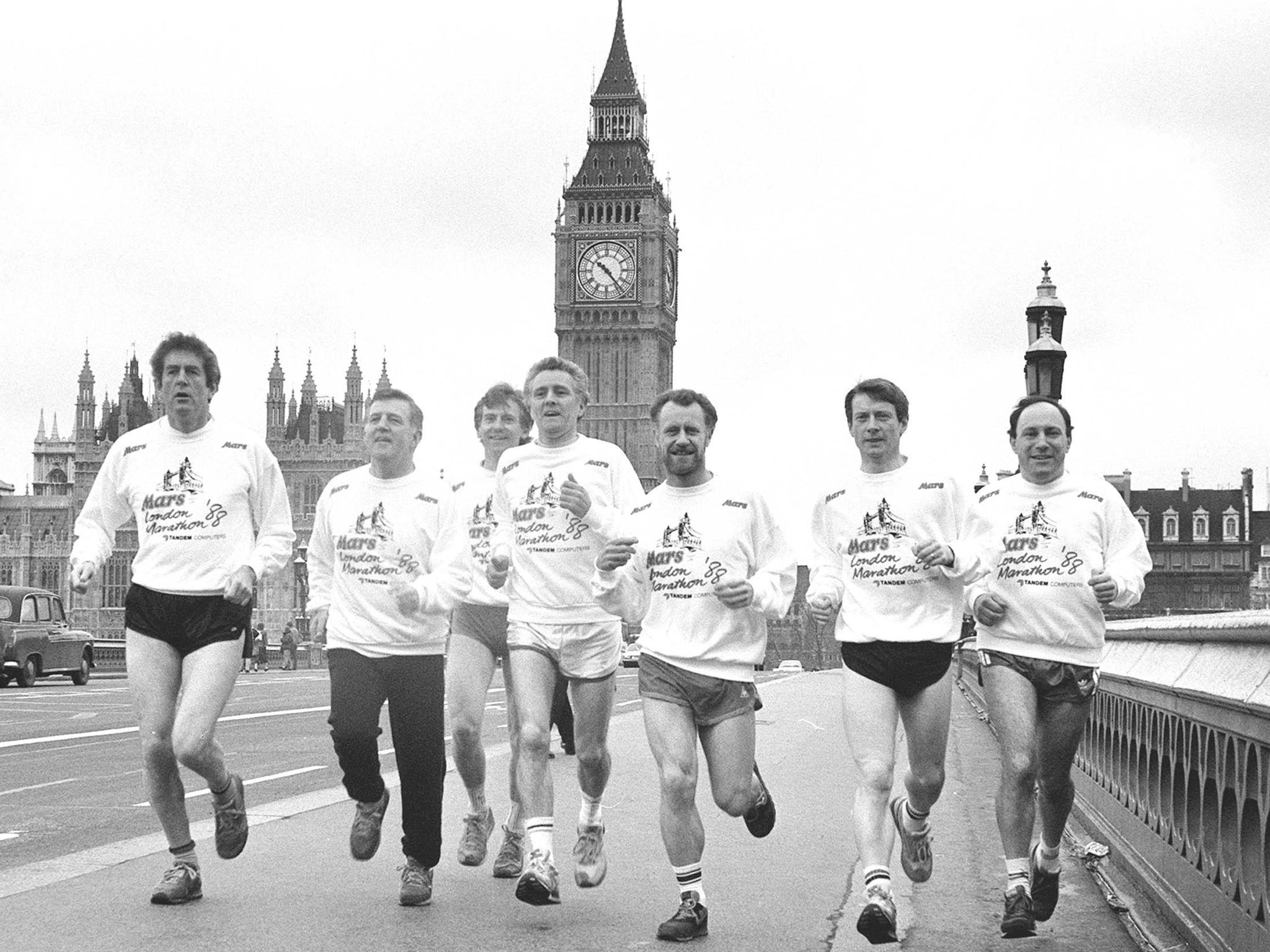Dick Douglas: Truculent politician who started out as Labour's 'Hammer of the Nats' before switching sides and joining the SNP

In the course of my 43 years in the House of Commons, no colleague of any party succeeded in raising the proverbial hackles on all sides as much as Dick Douglas. Small, with the wiry build of the marathon runner he was, he was habitually, gratuitously and unnecessarily abrasive; he veered from one extreme position to another, embarking on political life in Scotland as a "hammer of the Nats" but metamorphosing into a spiky SNP candidate.
And yet, and yet! In the company of his charming wife Jeannie at his home in Auchtermuchty – one of the Fife village's 17th century houses – I found him an excellent host. And there was a huge plus about his time in the Commons: he was one of the first MPs to recognise the importance of North Sea oil and gas, and the first to establish a genuine expertise in the detailed problems of and challenges to the offshore industry which was to be so crucial to the British economy.
My (minority) opinion is that though he might have driven civil servants in the Department of Energy "bananas", had Douglas been in a ministerial post, Britain might have benefited from North Sea riches even more than we did. No one had a greater grasp than Douglas of the complexities of the Byzantine licensing system, where the devil was in the detail.
The exact location of most people's birth is not generally a matter of great import for their future lives. For Douglas it was different. He was born into a family of shipyard platers, father and grandfather, within sight of Ibrox Park, hallowed home of Rangers FC. A supporter from the age of three, as he was always telling us, Douglas revelled in portraying himself as "your typical Glasgow Prod"; and, scratch him, it became quite obvious that his distaste for Celtic supporters was more profound than his distaste for Tories.
Having suffered a horrendous injury in 1935, his father was frequently out of work. Douglas could not afford tickets for Ibrox, so he would wait until the last 20 minutes and then go in for free. Leaving Govan High School at 14, he was lucky, in that a teacher who knew she was terminally ill left him £100. He found odd jobs, and at 16 became an apprentice engineer; three years later he was one of the ring-leaders of the Clyde apprentice's strike of 1951, which did actually achieve fairer conditions.
National Service in the Navy improved his prospects. A personal letter from his Commanding Officer to the Principal of the new University of Strathclyde, the broad-minded and perceptive Sam Curran, gained Douglas entrance, and he rewarded their judgement with a first class degree.
Douglas kept in close touch with the Co-Op College at Stanford Hall, Loughborough, which gave summer courses and provided him with introductions to Labour Party selection conferences and adult education posts. Between 1964 and 1970 he was a lecturer in economics at Dundee College of Technology.
This allowed him to fight the then blue chip Conservative constituency of South Angus, a rich farming area to the north of Dundee, as a Labour and Co-Op candidate. Inevitably he was trounced by Jock Bruce-Gardyne, a future Treasury minister, by 19,556 votes to 7,950.
It was felt that a good showing had earned him a better chance in a winnable seat, West Edinburgh. However, the Conservative MP there was the popular and well-entrenched Tony Stoddart; Douglas went down by 24,882 to 20,073. I was immersed in that election, in a neighbouring constituency to my own; one of the reasons for the disappointing result was that Douglas was, as he said, "all too obviously from Glasgow." We East Scots feel ourselves as different from the West Scots as the Visigoths felt about the Ostrogoths!
He stood in another by-election, but against the most formidable by-election candidate I have ever seen, the late Esmond Wright, Professor of Modern History at Glasgow University and Scottish television's equivalent of Robin Day. Douglas attributed his defeat to the Sterling crisis, and was forgiven by the Party.
In 1970 he inherited the Clackmannan constituency of Arthur Woodburn, one of Attlee's Secretaries of State for Scotland, but lost it in 1974 to George Reid, SNP, who was to become Presiding Officer of the Scottish Parliament. A veritable comeback kid, he was given a chance at Dunfermline in 1979, where he defeated a controversial right-wing Tory candidate, Tony Lester. In 1983 he held Dunfermline West – though there was a better result in the redistributed seat of Dunfermline East, where Labour had a young candidate called Gordon Brown.
Relations between the two Dunfermline MPs deteriorated from the merely tetchy to the cryogenic, which partly accounted for Douglas deserting Labour for the SNP in 1990. In 1992 he left Fife to contest Glasgow Garscadden, but was trounced by George Dewar, his erstwhile friend but by then his impatient political foe. He returned to Fife in 1994 to be thrashed in the European elections.
Personally, I'm sad. Things could have been so different for Douglas had he not displayed the unappealing, aggressive characteristics of the Ibrox terraces.
TAM DALYELL
Richard Giles Douglas, marine engineer, lecturer and politician: born Govan, Glasgow 4 January 1932; MP, Clackmannan and E Stirlingshire 1970–February 1974, Dunfermline 1979–83, Dunfermline West 1983–92; died Blockley 3 May 2014.
Subscribe to Independent Premium to bookmark this article
Want to bookmark your favourite articles and stories to read or reference later? Start your Independent Premium subscription today.

Join our commenting forum
Join thought-provoking conversations, follow other Independent readers and see their replies